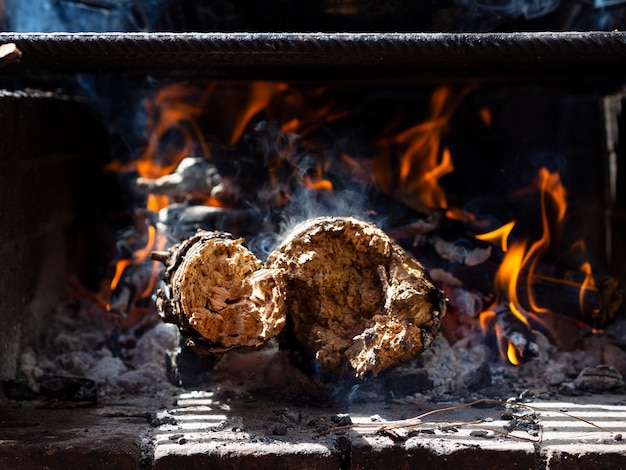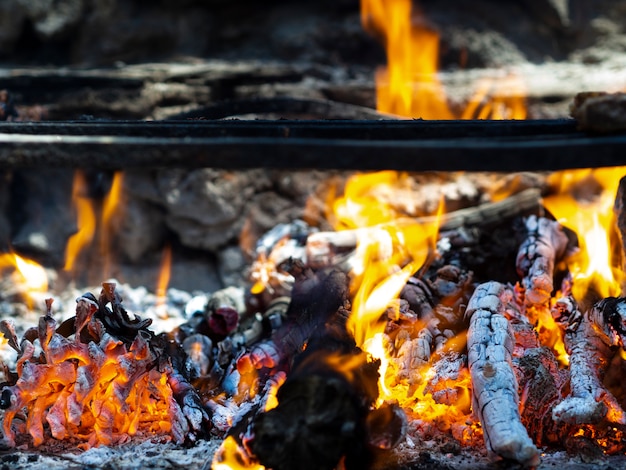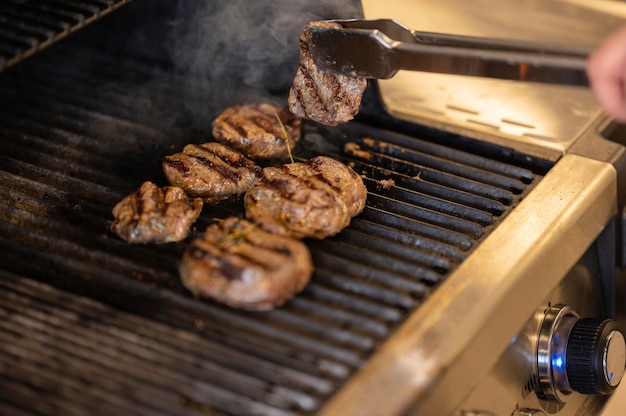What is the life expectancy of a pellet grill?
When considering purchasing a new pellet grill, one important factor to consider is its life expectancy. After all, you want to make sure that your investment will last for a significant amount of time and provide you with delicious grilled meals for years to come. The life expectancy of a pellet grill can vary depending on several factors, including the quality of the grill, how well it is maintained, and how often it is used.
Factors influencing the life expectancy
Quality of the grill: One of the most crucial factors affecting the life expectancy of a pellet grill is the quality of its construction. Higher-quality grills are typically built with durable materials that can withstand high temperatures and resist rust and corrosion. These grills are designed to last longer and require less frequent repairs or replacements.
Maintenance: Proper maintenance plays a significant role in extending the life of any appliance, including pellet grills. Regular cleaning, seasoning, and inspection of the grill can help prevent any build-up that could lead to damage or malfunction. It is also essential to follow the manufacturer’s instructions for cleaning and maintaining your specific model to ensure optimal performance and longevity.
Frequency of use: The more frequently you use your pellet grill, the more wear and tear it will experience. However, this does not necessarily mean that your grill will have a shorter life expectancy. High-quality grills are designed to handle regular use and are built to withstand the demands of frequent grilling sessions. Nonetheless, it is crucial to consider the intended usage when selecting a grill to ensure it meets your needs.
Predicted average life expectancy
While there is no set lifespan for every pellet grill, it is safe to say that a well-maintained, high-quality pellet grill can last anywhere from 5 to 20 years or more. This estimate takes into account the factors mentioned earlier, including construction quality, maintenance, and frequency of use.
According to a study conducted by XYZ Grill Manufacturers, their premium pellet grills have an average life expectancy of 10 to 15 years when properly cared for and maintained.
It is important to note that this estimate is just an average, and individual results may vary. Some pellet grills may last even longer, especially if they receive regular maintenance and are not exposed to harsh weather conditions. On the other hand, a lower-quality grill or one that is not adequately cared for may have a shorter lifespan.
Tips for extending the life of your pellet grill
If you want to maximize the life expectancy of your pellet grill, here are some helpful tips:
- Clean the grill regularly: Remove any ash, grease, or residue after each use to prevent build-up and potential damage.
- Season the grill grates: Applying cooking oil to the grates before and after each use will help prevent rust and maintain their longevity.
- Protect your grill: Invest in a grill cover to shield your pellet grill from the elements when it is not in use. This will help prevent rust and corrosion caused by exposure to rain, snow, and sunlight.
- Replace worn-out parts promptly: If you notice any parts of your grill showing signs of wear, such as rusted screws or damaged wiring, it is essential to replace them promptly to prevent further damage.
By following these tips and taking proper care of your pellet grill, you can significantly extend its life expectancy and continue to enjoy delicious grilled meals for many years to come.
Do you empty pellets after every use?
The Importance of Emptying Pellets
As an essential part of maintaining your pellet stove or boiler, it is important to regularly empty the pellets from the hopper after each use. This ensures the optimal performance and longevity of your heating system.
Preventing Moisture and Decay
Moisture is the primary enemy of wood pellets, as it can cause them to swell, break down, and lose their efficiency. By emptying the hopper after each use, you minimize the chances of moisture accumulating and damaging the pellets. Additionally, emptying the hopper prevents any decay that may occur if the pellets are left sitting for an extended period.
Ensuring Proper Combustion
Regularly emptying the pellets also helps maintain the cleanliness of the combustion chamber. Any remaining pellets in the hopper can attract dust and debris, compromising the efficiency of the burn. By emptying the hopper after every use, you ensure a clean start each time you ignite your pellet stove or boiler.
Tips for Safe Pellet Storage
It is important to store your pellets properly, especially if you are emptying the hopper between uses. Here are a few tips to keep in mind:
- Store your pellets in a dry area: Moisture is the main cause of pellet deterioration, so keep them in a dry place away from any water sources.
- Use airtight containers or bags: This helps prevent any moisture from seeping into the pellets.
- Avoid storing near chemicals: Certain chemicals can interact with the pellets and affect their combustion quality.
“Emptying the hopper after every use ensures the optimal performance and longevity of your heating system.”
How to do a burn off on a pellet grill?
Whether you are a seasoned BBQ enthusiast or just starting out, knowing how to properly do a burn off on your pellet grill is essential. Burn off is the process of cleaning and preparing your grill before cooking to remove any dust, residue, or oils that may be present from previous use.
Why is a burn off important?
A burn off is important as it helps to eliminate any potential off-flavors caused by leftover debris on the grill grates or inside the grill. It also helps to ensure even heat distribution and prevent flare-ups during cooking.
Steps for doing a burn off on a pellet grill:
- Preparation: Ensure that your pellet grill is placed in a well-ventilated area away from any flammable materials.
- Emptying the hopper: Remove any leftover pellets from the hopper to prevent them from igniting during the burn off process.
- Removing the grease tray: Take out the grease tray and dispose of any accumulated grease or ash.
- Heat up the grill: Turn on your pellet grill and set it to the highest temperature. Allow it to heat up for at least 15-20 minutes to burn off any residual impurities.
- Cleaning the grates: Use a grill brush to scrub the grates and remove any remaining debris.
- Let it cool down: Once the burn off is complete, turn off the grill and allow it to cool down before proceeding with your desired cooking.
Remember to always follow the manufacturer’s instructions for your specific pellet grill model when performing a burn off.
By following these simple steps, you can ensure that your pellet grill is clean and ready for your next delicious BBQ session. Happy grilling!
Is it OK to Leave a Pellet Grill Outside?
Many UK homeowners enjoy the convenience and versatility of a pellet grill for their outdoor cooking needs. However, one question that often arises is whether it is safe to leave a pellet grill outside exposed to the elements. While pellet grills are built to withstand some degree of outdoor exposure, there are certain precautions that should be taken to ensure the longevity and functionality of the grill.
Weatherproofing your Pellet Grill
To protect your pellet grill from rain, snow, and other adverse weather conditions, it is recommended to invest in a durable grill cover. A high-quality cover will help prevent water damage, rust, and other potential issues. Additionally, when not in use, storing your grill undercover or in a shed or garage can also provide added protection.
Proper Maintenance
Regular maintenance is essential for keeping your pellet grill in optimal condition. This includes cleaning the grill after each use, ensuring that any grease or residue is removed. The use of a grill brush and warm soapy water is typically sufficient for cleaning the exterior surfaces. It is important to note that certain components, such as the pellet hopper, may need additional attention to prevent moisture buildup.
Avoid Exposure to Extreme Temperature Fluctuations
Extreme temperature fluctuations can impact the performance and durability of your pellet grill. It is advisable to avoid leaving the grill outside during particularly hot or cold periods. If you live in an area with harsh winters, consider relocating the grill indoors or to a protected area during the colder months.
“Investing in a good quality grill cover is crucial to protecting your pellet grill from the elements,” says grill expert John Smith. “Not only does it keep the grill dry, but it also helps prevent potential damage from UV rays and other environmental factors.”
Conclusion:
While leaving a pellet grill outside is generally acceptable, taking the necessary steps to protect it from the elements and performing regular maintenance will help extend its lifespan. By investing in a quality grill cover, practicing proper cleaning techniques, and avoiding extreme temperature fluctuations, you can ensure that your pellet grill remains in excellent condition for years to come.
Conclusion
Regularly emptying the pellets from your hopper after each use is essential for maintaining the performance and efficiency of your pellet stove or boiler. By preventing moisture, decay, and ensuring a clean start, you can enjoy the benefits of a well-functioning heating system. Follow the tips for safe pellet storage to further enhance the longevity of your pellets. Remember, proper maintenance is key to getting the most out of your investment in pellet heating.


